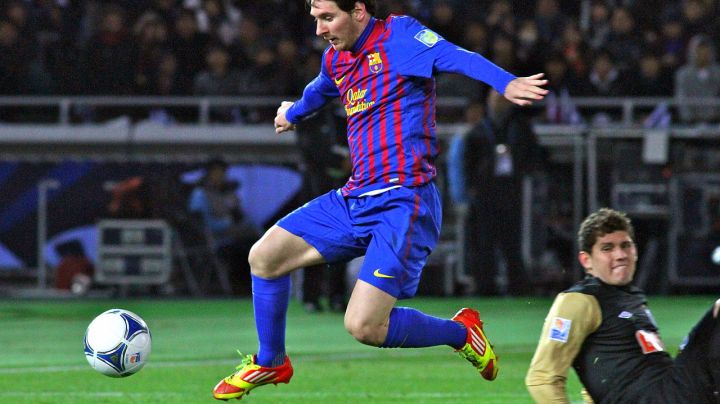Lionel Messi Won Lawsuit Against Spanish Newspaper That Mocked His Childhood Hormone Deficiency

Photo: Christopher Johnson/Wikimedia Commons
Lionel Messi keeps winning on and off the field, and that streak continued in the courts of Spain this week, as the Supreme Tribunal ruled in favor of the Argentine in a case against Spanish newspaper La Razón. The case revolved around a 2014 opinion piece titled “Sonatina,” written by columnist Alfonso Ussía, in which he called Messi “nandrolono,” a mocking reference to La Pulga’s childhood battle with growth hormone deficiency–nandrolone is an anabolic steroid used to treat such a disorder.
That hormone deficiency was the reason why Messi even went to Barcelona as a child: the club was one of the few able and willing to pay for his treatments, which cost upwards of $1,000 a month.
In the ruling, judges ruled that Messi will be paid €64,590 ($70535.51) for injuries to his reputation stemming from the article. The decision also stated that “taking advantage of a pathology suffered by the player during his infancy in order to criticize is past the limits of what would be a public opinion.”According to the Tribunal, La Razón’s article not only made fun of that disorder, but also implied that he was still using the treatment, which could be equivalent to a doping claim, something that could harm Messi’s “professional honor.”
The defendants in the case were La Razón director Francisco Marhuenda, Ussía, and the publication’s parent company, Audiovisual Española 2000 S. A.
Messi stated, through his representation, that he will donate the judgment in its entirety to Doctors Without Borders, which aligns with previous charitable endeavors like his contributions to education for Syrian children, and his partnership with Tour N’ Cure, an organization focusing on fighting Hepatitis C. And, just last month, Messi celebrated a goal against Sevilla by raising awareness for his campaign with Barcelona hospital Sant Joan de Déu, which looks to overcome childhood cancer.